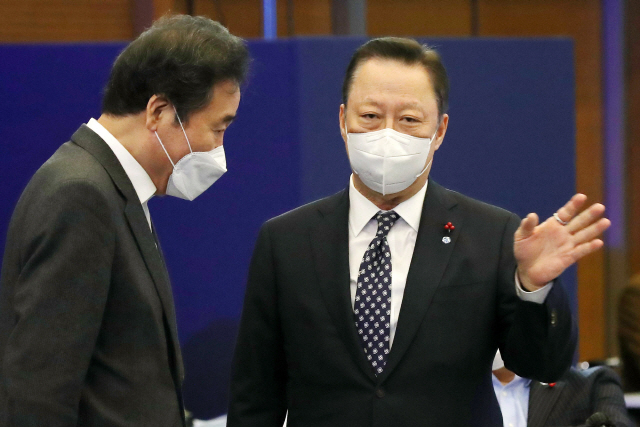Report on the five issues of the profit sharing system
Various factors affecting corporate profit and loss
Ignoring preemptive investment and R&D
It is inappropriate to only discuss corona special
Litigation risk increases due to infringement of dividend income
Concerns about’the 2nd Gukjeong Nongdan’ when making anti-force donations
Reduction of innovation engine applied only to domestic companies
 viewer
viewer
The National Federation of Entrepreneurs opposed the introduction of the benefit-sharing system by raising five issues. On the 17th, the FKI expressed its opposition to the benefit-sharing system, citing the reasons for the weakening incentives for growth: △Unclear profit calculation △Infringement of shareholder property rights △Possibility of judicial punishment by management △Equity concerns with foreign companies △Weakened growth incentives Worked.
The FKI saw that the justification of the benefit-sharing system itself could not be established for the novel coronavirus infection (Corona 19). It should be clear that companies have made profits from Corona 19, because there are various factors (global economy and market trends, competitiveness, marketing, exchange rates, etc.) that affect the company’s profit and loss, so it is practically impossible to disclose them. Even if it is related to Corona 19, it is practically impossible to determine its size.
Difficulty measuring profits from corona
Companies that are currently mentioned as targets for profit sharing Samsung Electronics (005930) Semiconductor, home appliance, etc. Kakao (035720)· There are platforms such as the People of Delivery and non-face-to-face companies. The FKI said they were able to improve their performance because they devoted themselves to investment and research and development (R&D).
FKI said, “In the case of electronics industry companies, if they had not carried out bold facility investment and R&D in the future, they would have been eliminated from the competition before benefiting from Corona 19. “In the case of Korea’s leading information technology (IT) companies, sales Even if it is negative, the R&D investment growth rate is steadily maintained at a high level.” “The sales of the online platform cannot be explained except for the accelerated distribution trend of the conversion to online shopping from before Corona 19.” “With ignoring the period in which the past investments were made to stabilize the platform and suffered losses It is not appropriate to discuss only Corona 19 special.”
 viewer
viewer
The FKI emphasized that the benefit-sharing system paradoxically infringes shareholders’ property rights. The profit-sharing system is a concept of sharing the profits of large corporations and non-face-to-face/platform companies that benefit from Corona 19 with small and medium-sized businesses and small business owners who are suffering damage.
However, if some of the corporate profits that can be returned as dividends go to companies or small business owners that are not related to the company, a problem may arise that directly infringes the interests of shareholders. As the number of individual investors increases due to the stock investment craze, the extent of the damage can widen.
Similar laws already exist. The’Performance Sharing System’, which is widely implemented by large companies based on the Win-Win Cooperation Act, is a system that shares the results of joint cooperation between large companies and partners such as new product development, productivity improvement, and cost reduction.
The FKI argued that a company’s litigation risk could increase in addition to the situation where a number of systems such as the multiple representative lawsuit system and the strengthening of minority shareholder rights were introduced that make it difficult for companies to manage smoothly.
Can’t rule out the possibility of judicial punishment
The law also increases the likelihood of judicial punishment by management. If the company’s interests are arbitrarily shared, management may be exposed to civil and criminal responsibilities. An official in the business world was concerned that “if the voluntary participation of companies is low, the’second Gukjeong Nongdan’ situation may recur due to anti-compulsive donation due to political pressure.” In fact, in the case of the Supreme Court’s case, if a director does not make a sufficient review of all conditions such as the nature of the donation, the impact on the purpose of the company and the public interest, the value of the amount, and the relationship between the company and the donor, when a director decides to make a donation, it is a violation of the manager’s obligation. It is judged to be.
The issue of equity with foreign companies also emerges. Foreign companies such as YouTube, a video platform that benefited from Corona 19, and Netflix, an online video service (OTT) company with a significant increase in subscribers, are not subject to such regulations, but are only holding back domestic companies. Along with this, companies’ pursuit of profits and weakening growth incentives that can weaken innovation incentives are also cited as problems of the profit-sharing system.
/ Variable actor [email protected]
< 저작권자 ⓒ 서울경제, 무단 전재 및 재배포 금지 >

